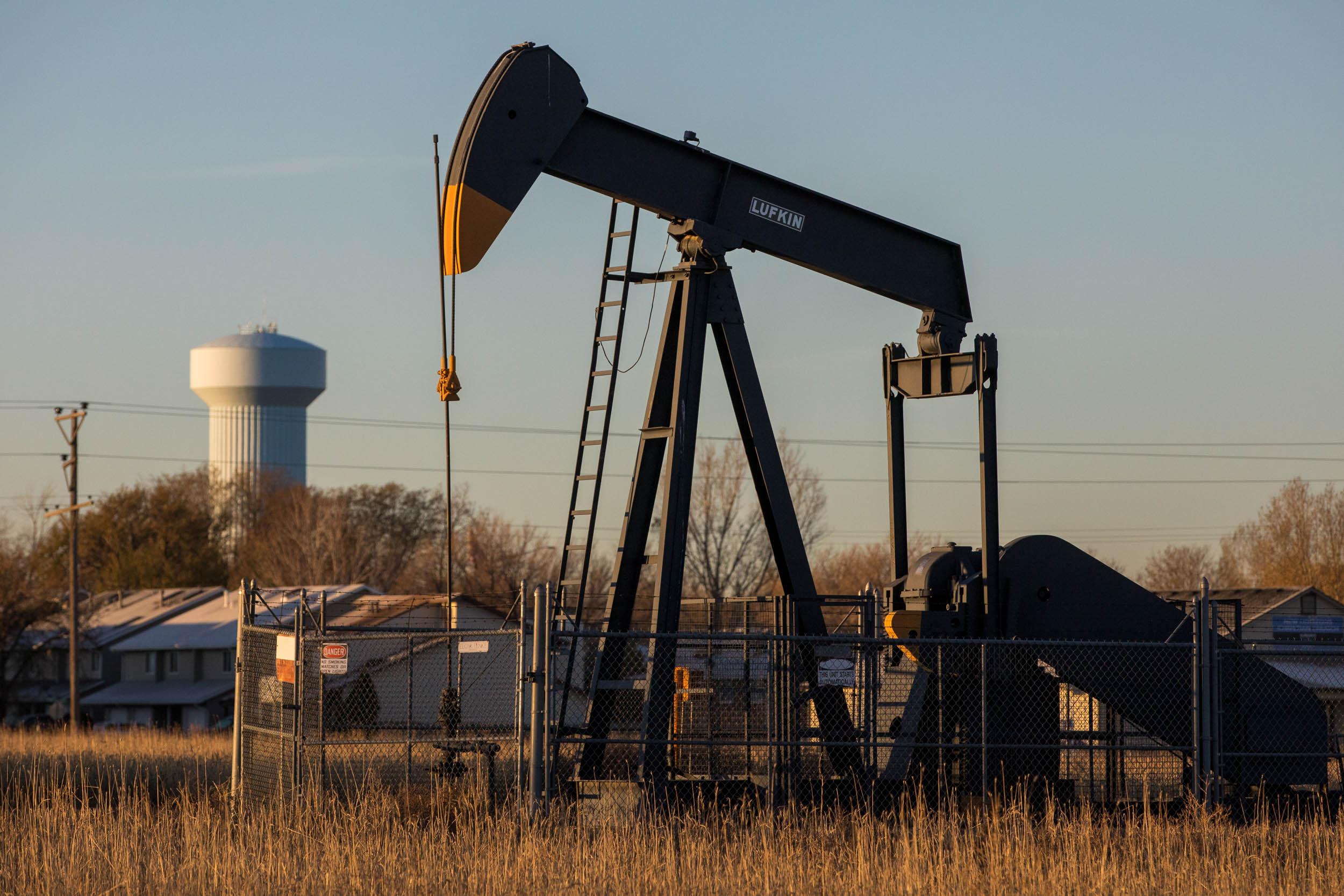
Colorado's top oil and gas regulators could be getting a new name and a broader scope of work.
Since its creation in 1951, the Colorado Oil and Gas Conservation Commission has approved thousands of drilling projects across the state. That role has put the governor-appointed panel at the center of countless conflicts related to climate change and the local impacts of fossil fuel extraction.
Now, a bill introduced by Democratic lawmakers Tuesday would give a new title to the seven-member committee: the Energy and Carbon Management Commission.
The name change is more than cosmetic. It signals an attempt to bring the commission — and the industry it regulates — into the state's larger efforts to combat climate change and provide new options for energy storage.
If the legislation wins approval, the panel would gain new authority over projects to drill for geothermal heat deep below the Earth's surface. It would also oversee any company planning to store natural gas underground and study the potential for similar hydrogen storage projects.
State Sen. Chris Hansen, a Denver Democrat and lead sponsor of the legislation, said the shift provides clarity for oil and gas companies with existing drilling expertise. Instead of exacerbating the climate crisis, those same techniques could assist in efforts to reduce emissions.
"That is certainly a possibility for some oil and gas firms. And we have a clear indication that some of those companies want to diversify their operations," Hansen said.
Drill, baby, drill — for underground heat.
Geothermal energy has gained the attention of the oil and gas industry in the last few years, which sees it as a way to shift its expertise and workforce to a far less carbon-intensive form of energy production.
A report from the National Renewable Energy Laboratory suggests underground heat is a vastly underutilized resource. Most current projects are undertaken at rare places where geothermal energy rises close to the earth's surface. New technologies could allow for deeper drilling, opening up the possibility of generating zero-carbon electricity at far more places around the planet.
Those future power plants could provide a steady, on-demand source of electricity. Proponents of the technology say it offers an ideal complement for less consistent sources of renewable energy like wind and solar. A geothermal plant also takes up far less space than other low-carbon options, cutting the risk of land-use conflicts.
Other examples of the technology use far more shallow wells to heat and cool buildings. Under the current version of the legislation, the new ECMC would only manage projects that require drilling beyond 2,500 feet below the surface. The state engineer would retain authority over shallow geothermal projects.
One of the leading boosters of geothermal energy is Gov. Jared Polis. Earlier this year, he launched the "Heat Beneath Our Feet" initiative in his role as the chair of the Western Governor's Association, which seeks to study opportunities for geothermal energy across the western U.S.
Conor Cahill, a spokesperson for the governor's office, said Gov. Polis supports the bill to give the oil and gas commission authority over enhanced geothermal projects.
"To lead on addressing the climate crisis, Colorado is advancing legislation to support carbon reduction and emerging technologies like geothermal including reforms at the Colorado Oil and Gas Conservation Commission," Cahill said in an emailed statement. "The Governor thanks the sponsors for bringing the bill forward."
The oil and gas industry supports parts of the plan, but some environmental groups don't want the state to throw companies a lifeline.
Dan Haley, the president and CEO of the Colorado Oil and Gas Association, said his industry group hasn't taken an official position on the bill just yet.
He said it was disappointing the legislation didn't address carbon capture, utilization and storage, often abbreviated as CCUS. The suite of technologies describes the process to collect carbon dioxide from industrial sources like coal-fired power plants and inject it underground.
"However, what’s in the bill does seem on target as it pertains to geothermal,” Haley said.
Some environmental groups are far less enthusiastic. Jeremy Nichols, the climate and energy program director for WildEarth Guardians, said the legislation is one piece of a broad effort to help oil and gas companies remain relevant. He'd rather see the state focus on cheaper technologies like wind and solar, rather than invest in unproven experiments in geothermal energy.
"We don't need to be managing carbon," Nichols said. "We have the means to stop carbon from being emitted in the first place."
The bill gets its first public hearing before the Senate Agriculture and Natural Resources Committee on Wednesday.
Funding for public media is at stake. Stand up and support what you value today.









